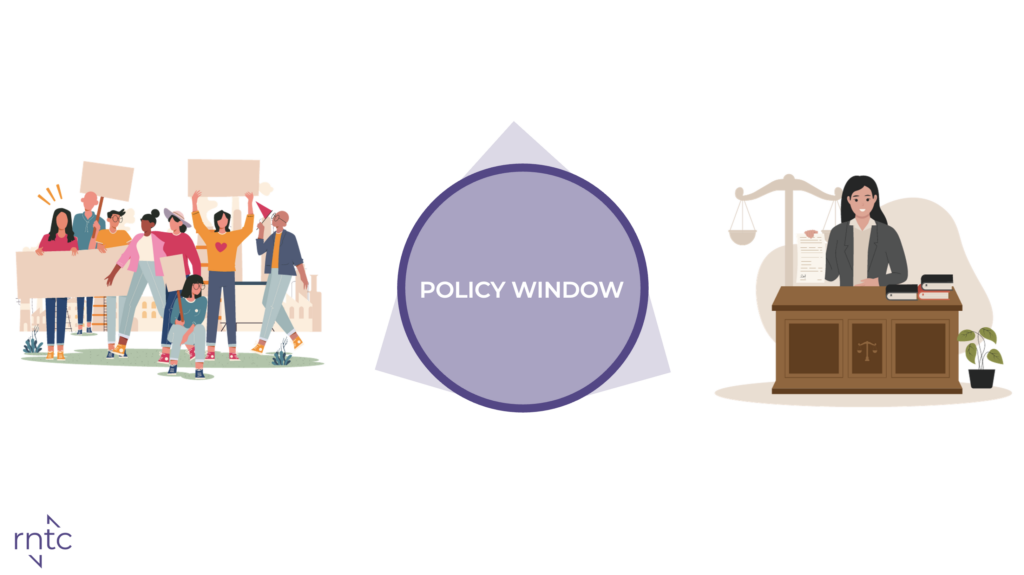Policy Window Copy

The key concept of Kingdon’s framework is the “policy window,” which refers to a temporary alignment of the three streams. When a policy window opens—meaning the problem, policy, and political streams converge—there is an opportunity for a policy change to occur. Successful advocacy involves identifying and capitalizing on these windows of opportunity.
Here’s how the framework works:
- Agenda Setting: At certain points in time, the three streams align to create a policy window. Advocates can influence this alignment by framing issues in ways that resonate with the problem stream, proposing viable policy solutions in the policy stream, and taking advantage of favourable political conditions.
- Advocacy and Action: Advocates can strategically introduce policy proposals, generate public awareness, and engage policymakers to build momentum. By doing so, they aim to influence the policy agenda and create a supportive environment for change.
- Policy Change: When the policy window opens, policymakers are more receptive to considering new policy options. Effective advocacy during this window can lead to policy changes, whether they involve new laws, regulations, or changes in existing practices.
- Policy Window Closure: Policy windows are temporary, and once they close, the opportunity for change diminishes. Advocates may need to wait for the next window or adapt their strategies to changing circumstances.
In essence, Kingdon’s Multiple Streams Framework provides a structured way to understand how policy changes come about, emphasizing the importance of timing, problem framing, and political context in the advocacy process.
Key Tip! Prepare a Political Elevator Pitch
Prepare a concise one-page document with hard data presenting the problem statement and diagnosis. Craft a political elevator pitch that highlights why the politician should support this change. In the ideal scenario, emphasize the representative’s political responsibility, clarifying the significance of the issue. At its core, this pitch is about fostering a sense of responsibility, advocating for change that aligns with their political role. In less ideal situations, approach it like a business pitch, emphasizing political interests. Showcase the potential benefits – by supporting the campaign the politician can garner support and goodwill from the community, potentially enhancing the politician’s standing.
- One-Pager: Summarize hard data for problem statement and diagnosis. Make your case strong!
- Link it to 17SGDs or a human rights principle
- Why should they care: Emphasize political responsibility and issue significance, if possible, also the potential impact of the solution (don’t jargon).
- Role of Representative: they have state responsibilities, international treaties, resolutions, or agreements. Research them and add them!
- Potential Benefits: Showcase community support and goodwill, enhancing the politician’s standing.
